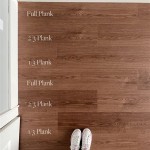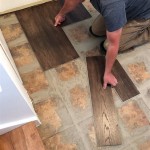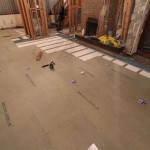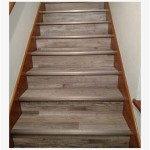Making the Right Choice: Bamboo Flooring vs. Wood
When choosing the perfect flooring for your home, balancing aesthetics, durability, and sustainability is crucial. Bamboo and wood flooring stand as two popular options, each with its unique set of advantages and disadvantages. To make an informed decision, it's essential to weigh their distinct characteristics carefully.
Sustainability Concerns
If environmental impact is a primary concern, bamboo flooring holds a clear edge over wood flooring. Bamboo is a rapidly renewable resource, with new shoots maturing within just 3-5 years. In contrast, wood flooring requires the harvesting of mature trees, a process that can contribute to deforestation and habitat loss.
Hardness and Durability
Wood flooring generally exhibits superior hardness compared to bamboo flooring. The Janka hardness scale, which measures the resistance of wood to indentation, reveals that most wood species used for flooring have higher ratings than bamboo. This translates to greater resilience against scratches, dents, and wear.
Water Resistance
Bamboo flooring comes out ahead when it comes to water resistance. Its dense structure makes it less susceptible to warping, swelling, or water damage, making it an ideal choice for areas with higher moisture levels, such as kitchens and bathrooms.
Installation and Maintenance
Both bamboo and wood flooring are relatively easy to install, though wood flooring may require more specialized tools and techniques. Maintenance is also similar: both types benefit from regular cleaning, sweeping, and occasional refinishing.
Price Considerations
Price can vary depending on the specific species of wood or bamboo, as well as the grade and finish. In general, bamboo flooring tends to be more affordable than premium wood flooring, making it an attractive option for those seeking a cost-effective solution.
Aesthetic Appeal
Both bamboo and wood flooring offer distinct aesthetic qualities. Bamboo flooring typically displays a natural golden color with subtle variations, while wood flooring comes in a wide range of species and stains, allowing for customization to match any décor.
Making the Final Decision
Ultimately, the best choice between bamboo flooring and wood flooring depends on your individual needs and preferences. Consider the following factors:
- Sustainability: Bamboo is the more environmentally friendly option.
- Durability: Wood flooring is harder and more durable.
- Water resistance: Bamboo is more water-resistant.
- Installation and maintenance: Both types are relatively easy to install and maintain.
- Price: Bamboo flooring tends to be more affordable.
- Aesthetic appeal: Both types offer unique aesthetic qualities.
Pros And Cons Hardwood Floors Vs Bamboo Flooring Builder

Bamboo Flooring Understanding The Pros And Cons Bennetts Carpets

Pros And Cons Of Bamboo Flooring

Bamboo Flooring Pros And Cons Forbes Home

Bamboo Vs Hardwood Flooring Difference And Comparison Diffen

Pros And Cons Of Bamboo Flooring

Types Of Hardwood Flooring Forbes Home

Can You Refinish Bamboo Flooring Here S How Floorings

Types Of Hardwood Floors The Home

Bamboo Floor Wikipedia
See Also







